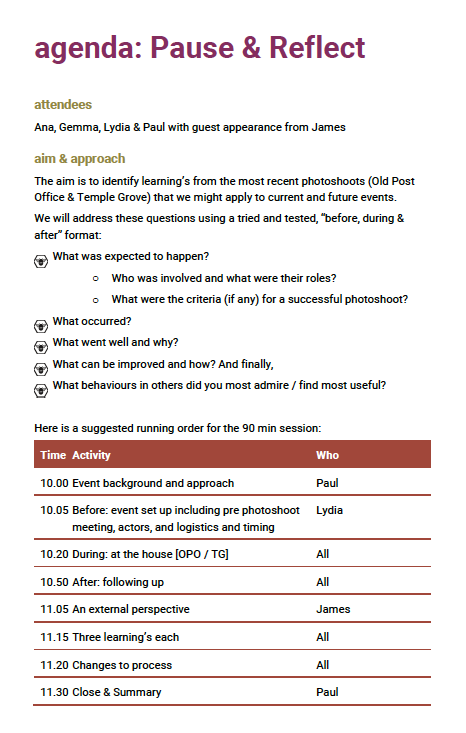I’ve previously written about the Japanese practice/culture of Omotenashi; the pursuit of excellence in customer service by anticipating and exceeding customer needs. Where such a culture is not the norm and you aspire to high standards it is important customer facing team members are confident they have the authority to make clients or guests feel special and keen to return.
Here’s what can happen when they don’t feel they have the autonomy to make on the spot decisions.
The golf glove story
I’ve been in Sesimbra, Portugal for an annual trip with a few of my golfing buddies. Bear with me, this is not about the golf or the astonishing Sesimbra Carnaval which took place concurrent with our arrival and continued with gusto all night outside our hotel window!

Despite having some of the best courses around, golf in Portugal has not attained the same cult following as in other European countries. And it’s very difficult if you play left handed to acquire accessories such as golf gloves.
I’d managed to acquire one near to our home in Lisboa, so, fired up and ready to go I was looking forward to the next day’s game at Qunita Do Peru with renewed optimism.
Arriving in good time for our tee slot at “…one of the most prestigious golf courses” whose mission includes the phrase “Provide premium and unique experiences…”, clubs and glove were loaded onto our buggy while we went for a pre round bica. Almost immediately a very affable South African lady (Caddy Master) came to tell us she’d moved our bags and shoes to another cart. Coffee drunk, we went out to collect our gear only to discover my recently acquired (and unused) golf glove was nowhere to be seen.
Caddy Master was confused; she remembered transferring it to the new buggy and could not explain its dissapearance. Not wishing to create a fuss I asked her to make a few enquiries to see if it had been handed in at reception / pro shop. It had not!
The professional had a right hand glove in my size. Great I thought, problem solved. Except it wasn’t. I was then asked to pay. When I queried why, since they had moved my original glove, I was told it was on the replacement buggy and it was not their fault it had gone missing.
The giveaway phrase: “we would have to pay for the replacement”!
The mail bag story
Every 6 weeks or so, Bees Homes writes a letter to selected homeowners in which we provide an insight on the housing market as well as tips on how they might effectively present their property in the event they decide to sell.
Though time consuming, it has proved to be a valuable way of demonstrating expertise and generating future clientelle.
We usually manage to fill a couple of sacks with envelopes and the local post office (before it was closed) gave us sacks to make it easier and avoid clogging up post boxes.

A few weeks back I took two sackfulls into Ringmer Post Office housed (as most now are) in a convenience store. Greeted by a closed sign, the welcome was less than effusive. However a kind soul ‘John’ said if all we wanted was to deposit the sacks that was ok.
I thanked him and asked for replacement sacks. He was about to hand some over when a surly woman, perched behind the closed sign, said “Be careful John, we don’t have many sacks left”.
Fortunately, John ignored her and handed me a couple of replacements.
And the moral is?
In the first example at Quinta Do Peru, while everyone was very pleasant their response in a crisis was kilometres away from what they espoused to be. As a result none of us felt like going into the clubhouse for a meal and drink at the end of our round.
In the second, it was the crass stupidity of the remark and the way it was delivered that struck me. Had John not have offered replacements I would have asked him to put our sackfull into theirs and asked for mine back!
Reflecting on these and many other similar situations over the past few months I am left wondering where the disconnect occurs between the coporate narrative and those charged with delivering the service.
I think it comes down to empowerment and ownership: we hire expensive brand consultants to develop vision and mission statements but, absent a service culture, the lofty ideals they come up with fail to land with the people charged with implementing them. They don’t own the story!
How would your team behave in these situations. Are they empowered to make on the spot decisions and feel confident to do so knowing you have their back?
And finally
It would be remiss not to give a shout out to Alexandra Goncalves of Orizonte Golf the organiser of our Sesimbra sojourn. She ensured we were well briefed about the traffic restrictions around our hotel caused by Carnaval that might hinder our arrival and arranged for temporary storage of our golf clubs at Aroeira.
Post script (March 23)
Alexandra shared my post with Quinta do Peru’s Director of Golf, Hugo Amaral. He responded to me as follows:
Dear Paul,
I was just told today by Alexandra about what happened on your visit to Quinta do Peru and I was shocked to know all the information.
I remember clearly such date as on the same day hosting a tournament for Edge college, and it was a very busy day. May that’s explains why I haven’t been informed on spot about what happened as I was probably on the course with the Tournament organizers.
I feel ashamed by all this situation and do hope that that incident didn’t ruined your experience at Quinta do Peru.
The fact that the Pro Shop isn’t owned by us, and of course we would have to reimburse the shop owner for the glove, shouldn’t be used as an excuse to incur you on an extra expense, and it should be our responsibility to fully replace your lost good.
I do hope that next time you are in the region you pay us a new visit as I would be more than happy welcome you and compensate you of this extra (forced) cost.
Please accept my apologies and my kindest regards,
Hugo
Hugo’s response was appreciated and reminded me of an experience in Cuba after which I wrote a piece on “A complaint is a gift“.




